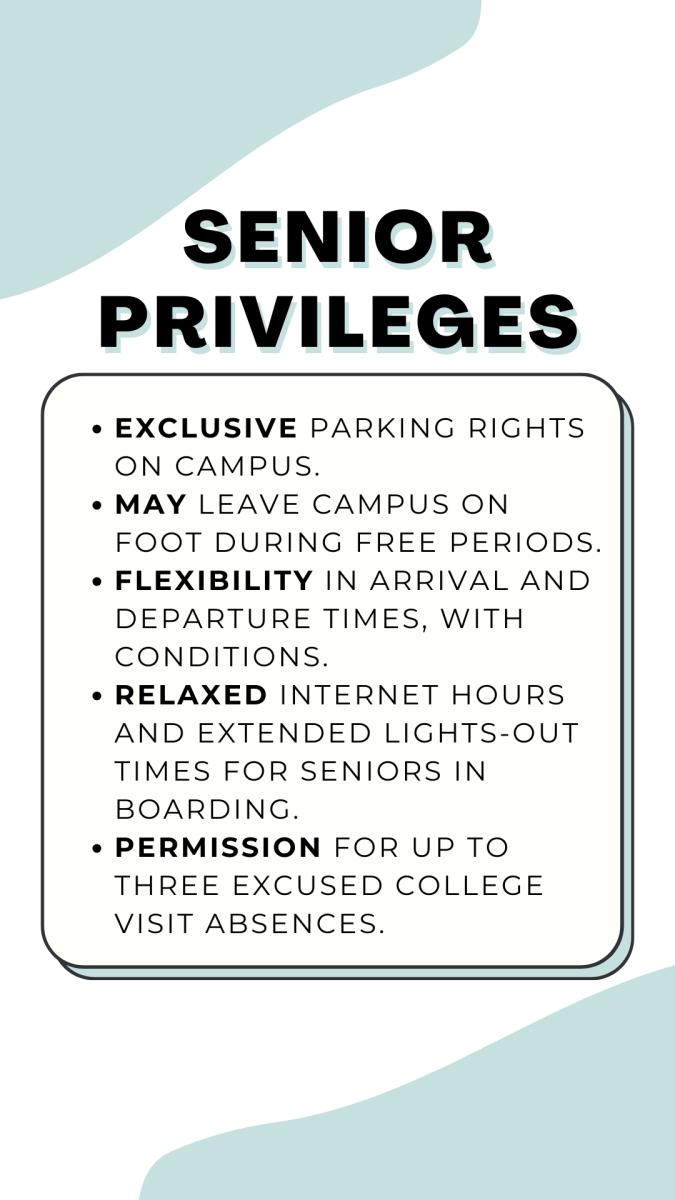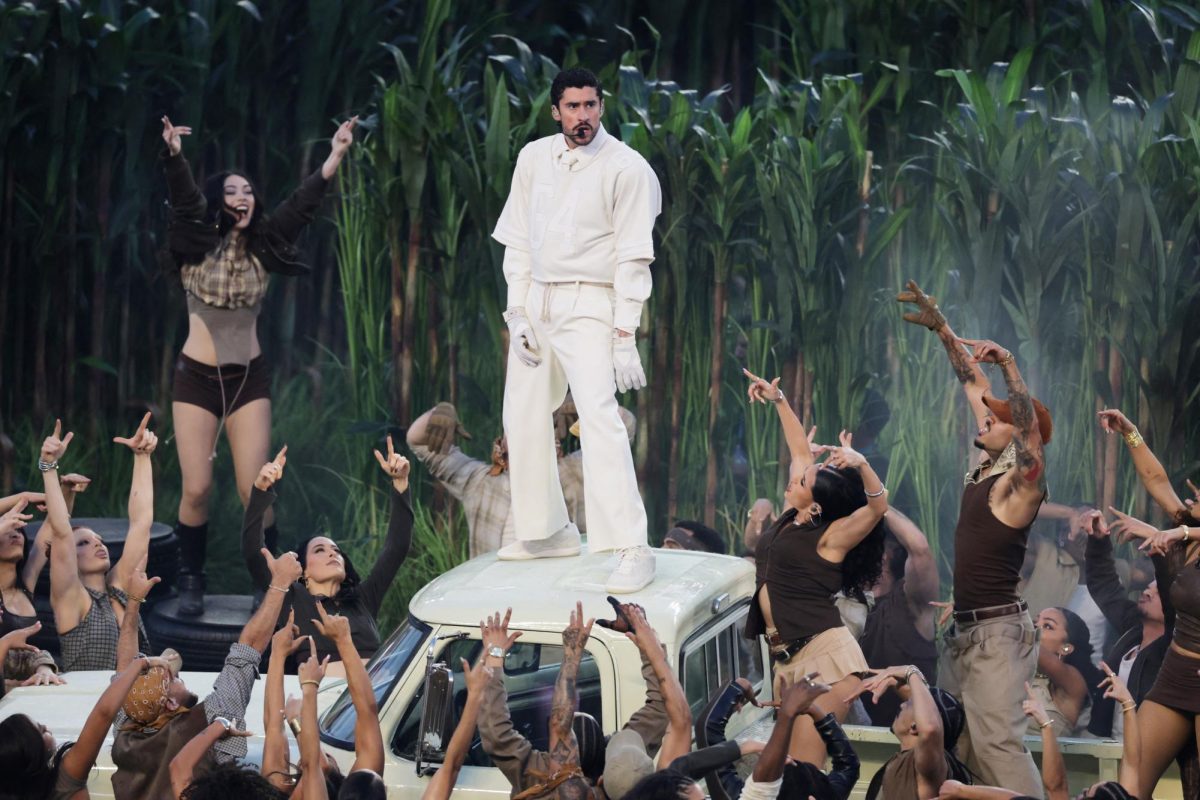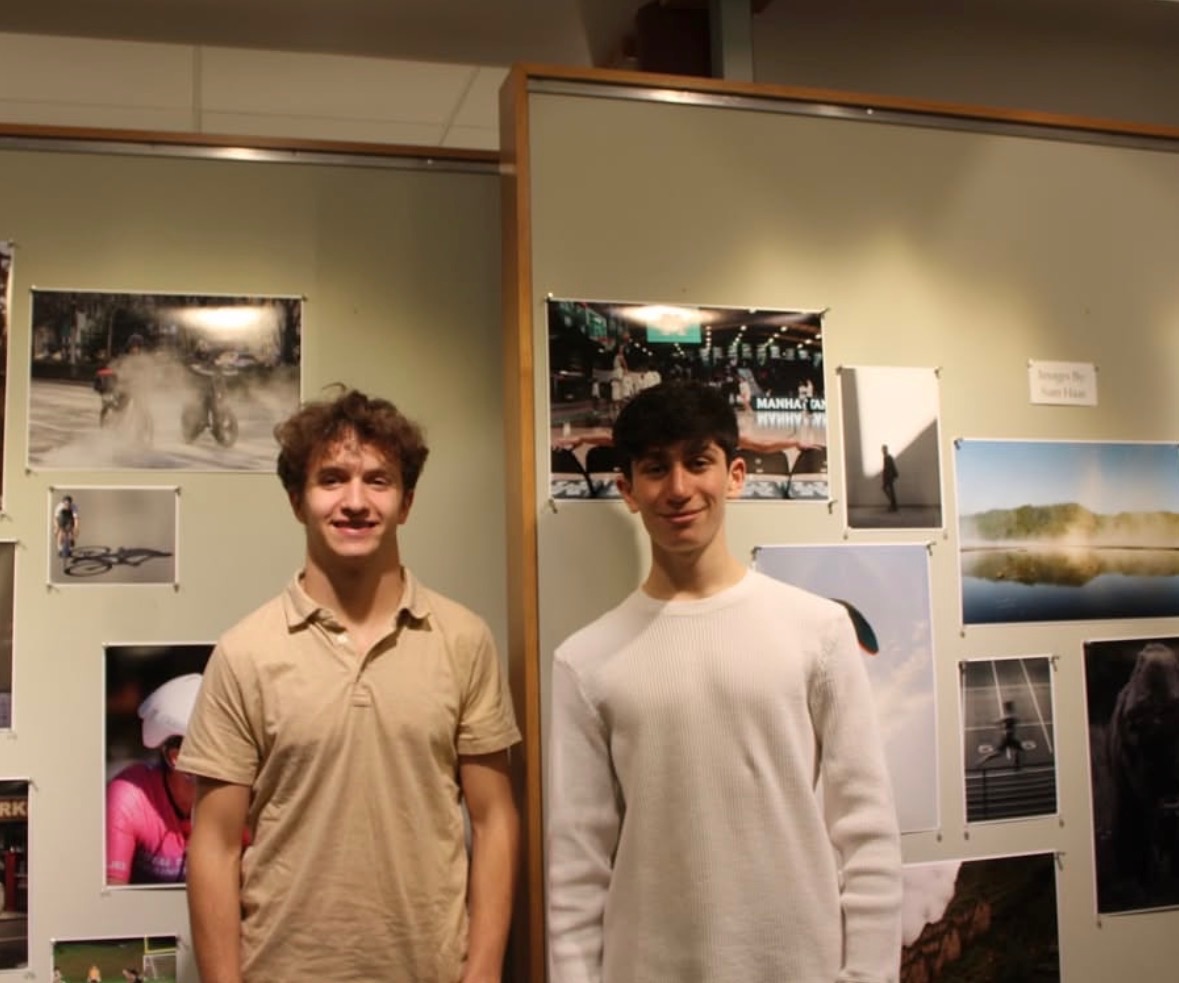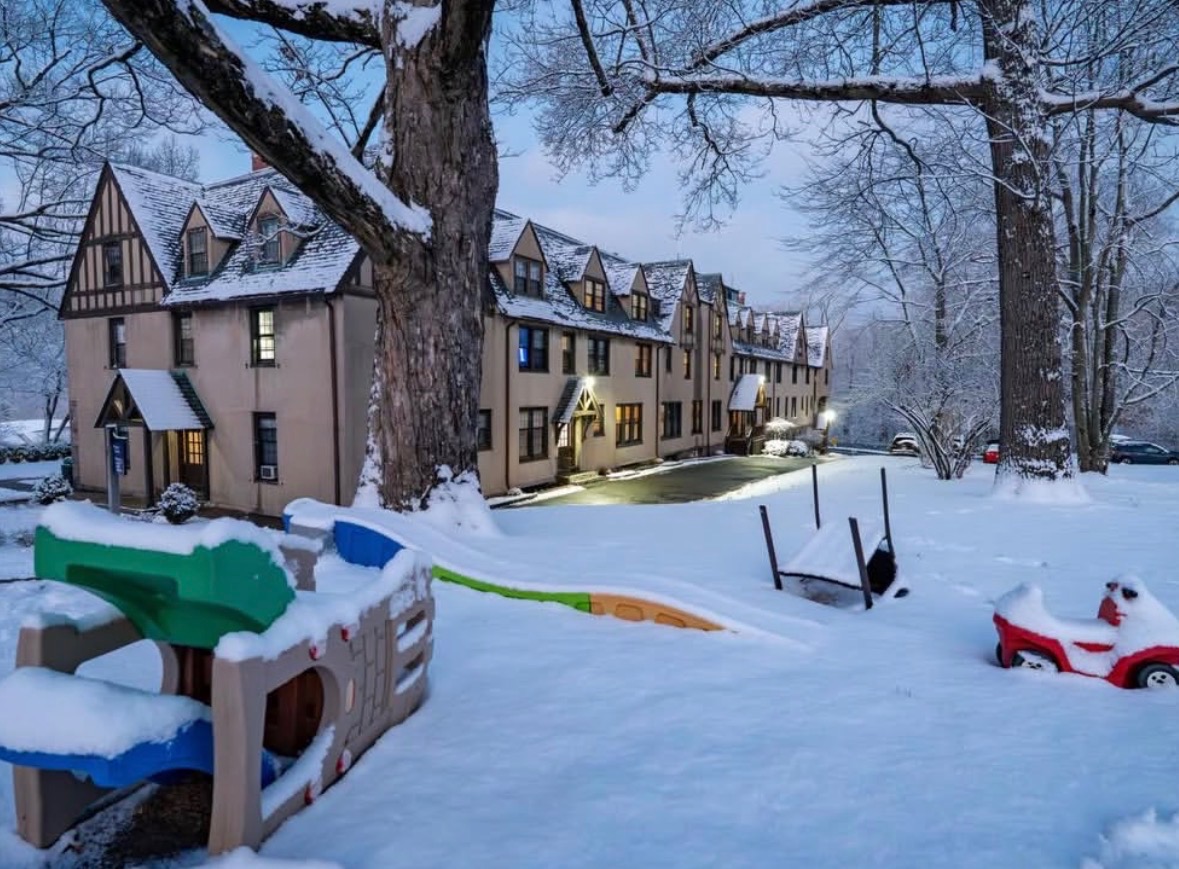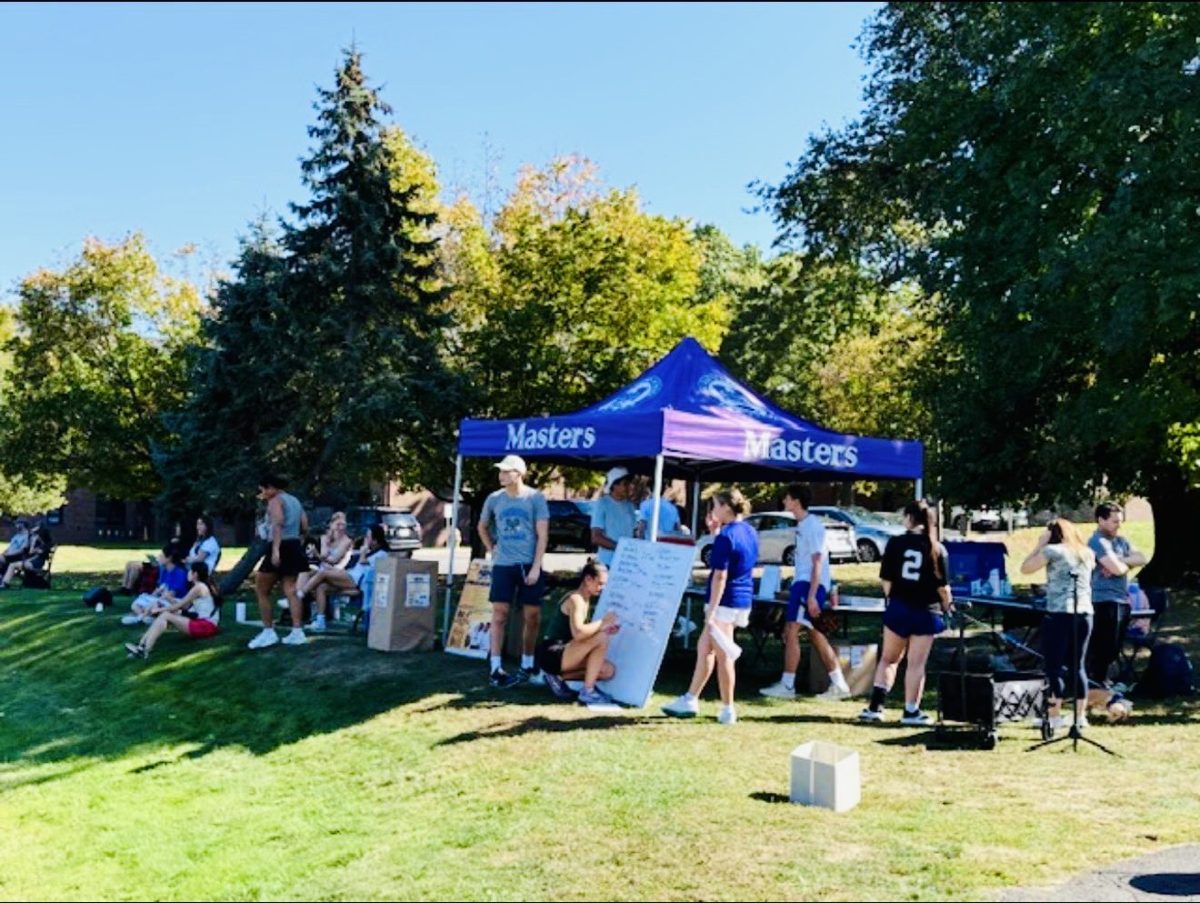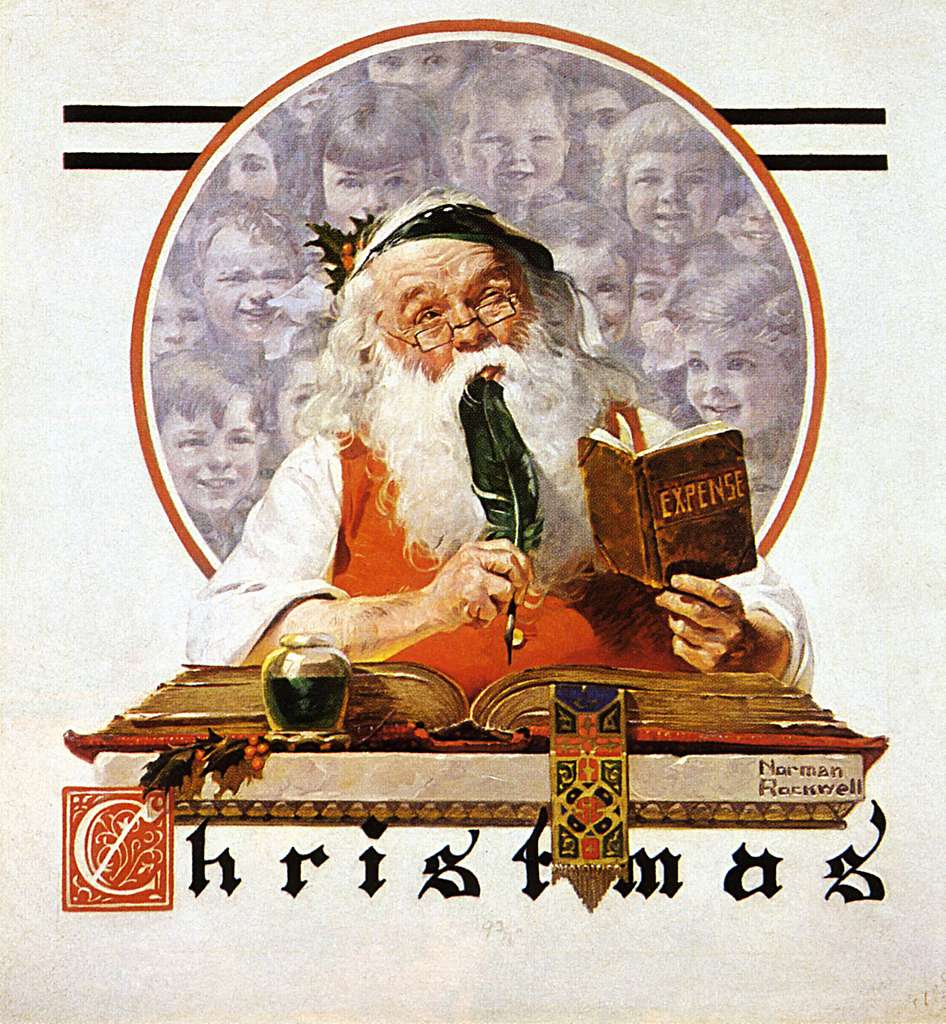In a policy revision this January, junior and senior boarders were allowed to host students of any gender in their dorms from 8 p.m. to 11 p.m. This change is part of a broader effort to recognize the maturity of upperclassmen and give older students some special privileges.
One of the most significant senior privileges outlined in the Family Handbook involves cars. “Only seniors will be eligible to park on campus,” the Handbook states.
Senior day student Charlie Milward said, “The most useful [privilege] for most seniors by far is the senior parking lot and parking on campus. It is extremely useful, and the only challenges I have faced with that are that spots can fill up pretty fast.”
This privilege, however, is strictly regulated and comes with various responsibilities, including registering vehicles at the security office at the beginning of the year and adhering to designated parking areas.
Additionally, seniors “in good academic and disciplinary standing” may leave the campus on foot during their free periods. Milward said, “I’ve been off campus once for lunch, and it was nice but didn’t really feel worth the time as the dining hall is right there with everything I need. But having the option does give a sense of maturity.”
Another senior privilege is extra sleep. If they have no scheduled classes, seniors can arrive as late as 9:50 a.m. and leave whenever all their school obligations are complete.
Boarding students are not allowed to have cars on campus, but they are granted many more responsibilities and privileges as upperclassmen. During study hours, boarding ninth and tenth-grade students must be engaged in academic work, using their computer only for schoolwork and refraining from all other electronics. Upperclassmen instead observe “quiet hours” from 8-10 p.m. While most students still use this time to complete academic work, it is no longer mandated. The internet hours for juniors and seniors also extend until 1 a.m. on weekdays, instead of 11:30 p.m. for underclassmen boarders. Seniors are also granted an additional 30 minutes before lights out.
Two lesser-known privileges awarded to upperclass students as well. The first is Community Council eligibility. Students who serve on the Community Council undergo an application and training process, typically occurring in the fall. Only juniors and seniors are eligible to serve on this Council, providing them an opportunity to be more involved in the decision-making processes at Masters.
Additionally, seniors are allowed up to three absences for college visits.
Milward feels that three college visit days is not enough. He said, “I feel like the college touring should be a given, and I actually think they should give us maybe five days because a lot of schools don’t do weekend tours, and it can just take up a lot of time flying across the country or driving places in New England.”



